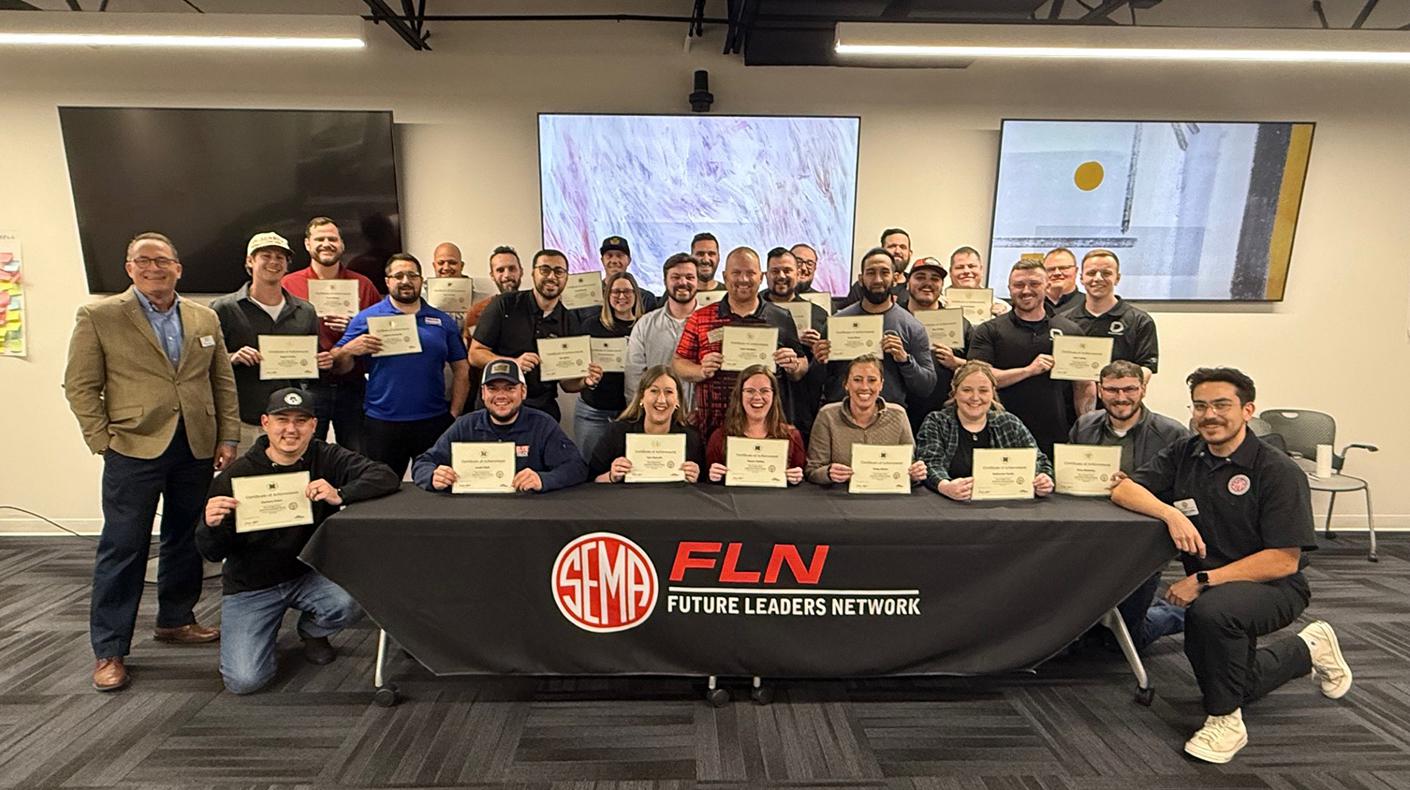By the SEMA D.C. Office
The U.S. House of Representatives Ways and Means Committee has passed the SEMA-supported American Families and Jobs Act, a legislative package comprised of three bills from Committee Chairman Jason Smith (R-MO): the Tax Cuts for Working Families Act (H.R. 3936), the Small Business Jobs Act (H.R. 3937), and the Build It in America Act (H.R. 3938). The bill includes key provisions that will benefit automotive aftermarket businesses, including a 100% bonus depreciation for qualified property, expanded small business expensing to $2.5 million and the restoration of immediate expensing for Research and Development (R&D) for tax years 2021 through 2025. The bill would also create full expensing for machines and equipment. The American Families and Jobs Act now awaits consideration on the floor of the U.S. House of Representatives.
SEMA-supported American Families and Jobs Act, a legislative package comprised of three bills from Committee Chairman Jason Smith (R-MO): the Tax Cuts for Working Families Act (H.R. 3936), the Small Business Jobs Act (H.R. 3937), and the Build It in America Act (H.R. 3938). The bill includes key provisions that will benefit automotive aftermarket businesses, including a 100% bonus depreciation for qualified property, expanded small business expensing to $2.5 million and the restoration of immediate expensing for Research and Development (R&D) for tax years 2021 through 2025. The bill would also create full expensing for machines and equipment. The American Families and Jobs Act now awaits consideration on the floor of the U.S. House of Representatives.
The Tax Cuts for Working Families Act (H.R. 3936) provides a $4,000 standard deduction bonus in tax years 2024 and 2025 for joint returns and $3,000 for those filing as head of household. The committee estimates that nine out of 10 American households use the standard deduction, which provides tax relief and fewer tax filing headaches.
The Small Business Jobs Act (H.R. 3937) includes multiple provisions designed to help small businesses navigate price increases, worker shortages, and supply-chain failures by cutting IRS red tape, expanding jobs and investment and supporting rural communities. Below are key provisions:
Expands Sec. 179 small business expensing to $2.5 million.
- The provision builds on the current $1 million cap under Sec. 179 of the tax code and increases the maximum amount a taxpayer may expense to $2.5 million, reduced by the amount by which the cost of qualifying property exceeds $4 million. The proposal applies to property placed in service in taxable years beginning after December 31, 2023.
- Sec. 179 allows a taxpayer to expense the cost of qualifying property rather than to recover such costs through tax depreciation deductions, subject to limitation. Qualifying property is defined as tangible personal property, off-the-shelf computer software and qualified real property that is purchased for use in the active conduct of a trade or business.
Increases the general 1099 reporting threshold to $5,000.
- Currently, business owners must send tax forms to contractors that provide more than $600 of work to their business.
- This provision offers relief for small businesses by increasing the reporting threshold for subcontract labor from $600 to $5,000.
Expands tax incentives to investors in startups organized as "S Corporations."
- Currently, IRC 1202 tax benefits are available only to investors in startups organized as "C Corporations," leaving out "S Corporations," which represent nearly half of all U.S. business entities. The bill includes "S Corporations" in this incentive program.
- The provision expands the exclusion from qualified small business stock under IRC 1202 by modifying the holding period by providing a new 50% exclusion for stock held at least three years and a 75% exclusion for stock held at least four years. Stock held for at least five years would continue to be eligible for a 100% exclusion. It also expands qualification to "S Corporations" and allows investors to add their holding period for qualified convertible debt to the holding period required to qualify for the exclusion.
Establishes rural opportunity zones.
- Provides for temporary deferral of inclusion in gross income for capital gains reinvested in a qualified rural opportunity fund and the permanent exclusion of capital gains from the sale or exchange of an investment in the qualified rural opportunity fund, following the structure of opportunity zones created in the Tax Cuts and Jobs Act (P.L. 115-97).
- It defines a qualified rural opportunity fund as an investment vehicle organized as a corporation or a partnership for the purpose of investing in qualified rural opportunity zone property that holds at least 90% of its assets in qualified rural opportunity zone property.
The Build It in America Act (H.R. 3938) would revive a set of tax breaks for companies' research spending, interest expenses and equipment purchases while also reinstituting a cap on the number of clean vehicle tax credits. All three policies help lower corporate tax bills but lapsed last year as part of a larger, planned wind-down from the 2017 tax overhaul. Below are key provisions:
Restores immediate expensing for R&D for tax years 2021 through 2025.
- Currently, businesses must deduct R&D expenses over five years for research done in the United States and over 15 years for research outside the United States.
- The provision delays the date when taxpayers must begin deducting their research or experimental costs over five- and 15-year periods until taxable year 2026.
Allows mid-sized businesses to fully deduct interest expenses.
- Starting in 2022, employers have faced a more restrictive limit on the amount of business interest that they can deduct each year. Instead of using "earnings before interest, taxes, depreciation, and amortization," companies can only deduct interest expenses only up to 30% of their "earnings before interest and taxes" currently.
Creates 100% expensing for machines and equipment to help U.S. businesses hire workers and expand manufacturing.
- Currently, businesses can only deduct 80% of the cost of equipment, machinery and vehicles, with the rest of the deduction claimed over the life of each asset.
Extends 100% bonus depreciation for qualified property placed in service after December 31, 2022, and before January 1, 2026.
- The provision also retains 20% bonus depreciation for property placed in service after December 31, 2025, and before January 1, 2027.
"The legislation introduced today pulls together critical ideas introduced by Ways and Means Committee members in response to needs and concerns voiced by the American people," said Committee Chairman Smith. "It builds on successful tax policies enacted by Republicans that spurred higher economic growth--far more than projected--and sparked the fastest growth in real wages in 20 years. These policies will provide relief for working families, strengthen small businesses, grow jobs and protect American innovation and competitiveness."
For more information, contact Tiffany Cipoletti at tiffanyc@sema.org.





